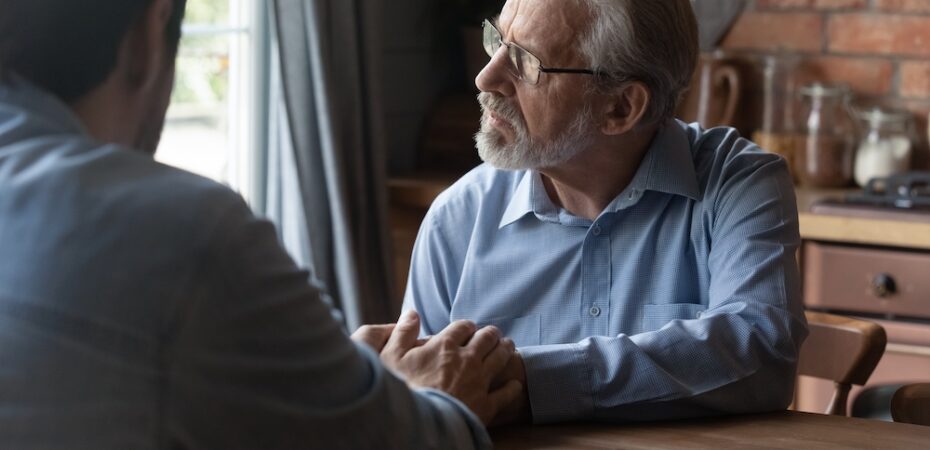Grief in the Holidays
Deacons can support those suffering loss
Father Deacon Basil Ryan Balke Comments Off on Grief in the Holidays
I began my career as a mental health counselor at a hospice doing grief counseling and support. During the holiday season, I think more about grief and death than at any other time of the year. Starting in early November, we would talk with our clients about “getting through the holidays,” and the uniqueness of the grief journey around the holiday season. It is important to remember how this time of year can be particularly painful for some parishioners.
It might seem obvious to some that the holidays would be a time of grief. During this time of joy there is often a tendency to think about a person that is missing — the person who was there last year that is not there today. While symbolism and conversations about death might not be common during this time of year, they certainly are present under the surface.
Grief is normal, and something we all will likely go through, but it is also traumatic. Grief is something that, if we live long enough, all of us will experience. Whether it is the death of a parent, spouse, child, friend or co-worker, we will eventually experience death. This is why we still have so many rituals within our culture that center on death and dying. The funeral remains a common practice even in a secular world. In grief counseling, we call it the “everyday trauma,” and I believe that the everydayness of grief makes us feel like it is not that big a deal. In reality, grief can be one of the most difficult traumas to experience, because of its finality. We, as deacons, can’t fall into the trap of saying that it is an everyday occurrence, so it shouldn’t hurt.
This is a normal day for me, but one of the hardest days for the bereaved. I think this comes out in my own experience as a grief counselor. One morning, I was present for the death of a patient. The mortuary removed the body and the family told me that I was no longer needed. The question that went through my head was, “What am I supposed to do now?” I realized that I hadn’t had breakfast. So I went to Denny’s and had breakfast. The reality struck me then that the family I just sat with was experiencing the worst day of their lives while I was sitting there eating my pancakes. We must be extremely sensitive to how our everyday lives and activities might be very different from those of our grieving parishioners.
There are a number of ways in which a parish might help families during the holidays. The first way might be to have a Rosary prayed around the holidays in remembrance of all those who have died over the last year. Having the community come together to pray for the dead during the holidays is a powerful activity. In the Roman rite, you have the wonderful Office for the Dead in the Liturgy of the Hours. This could be used, too. In the Byzantine and Eastern rites we have the Panikhída and Akathist for the Departed. These could be used, too.
I think the best thing a deacon can do is to call family members who have experienced the death of a loved one over the last year. They can simply check in to see how things are going and whether the parishioner needs anything for this season. It takes only a few minutes, but it is well worth the time of connection.
If your parish does not have a Stephen’s Ministry, you might want in which psychotherapy might be needed. If you are not a Stephen’s Ministry minister as a deacon, I strongly encourage you to become one as soon as possible.
This is a wonderful time of year, but we also need to remember those in our parishes who are suffering.
FATHER DEACON BASIL RYAN BALKE is a Byzantine deacon, licensed professional counselor, director of Mount Tabor Counseling, mounttaborcounseling.com; one of the hosts of the Catholic Psyche Podcast, catholicpsyche.com; and director of custom solutions for the Center for InMinistry Development, inministrydevelopment.com. He serves as a deacon of the Eparchy of Phoenix.





